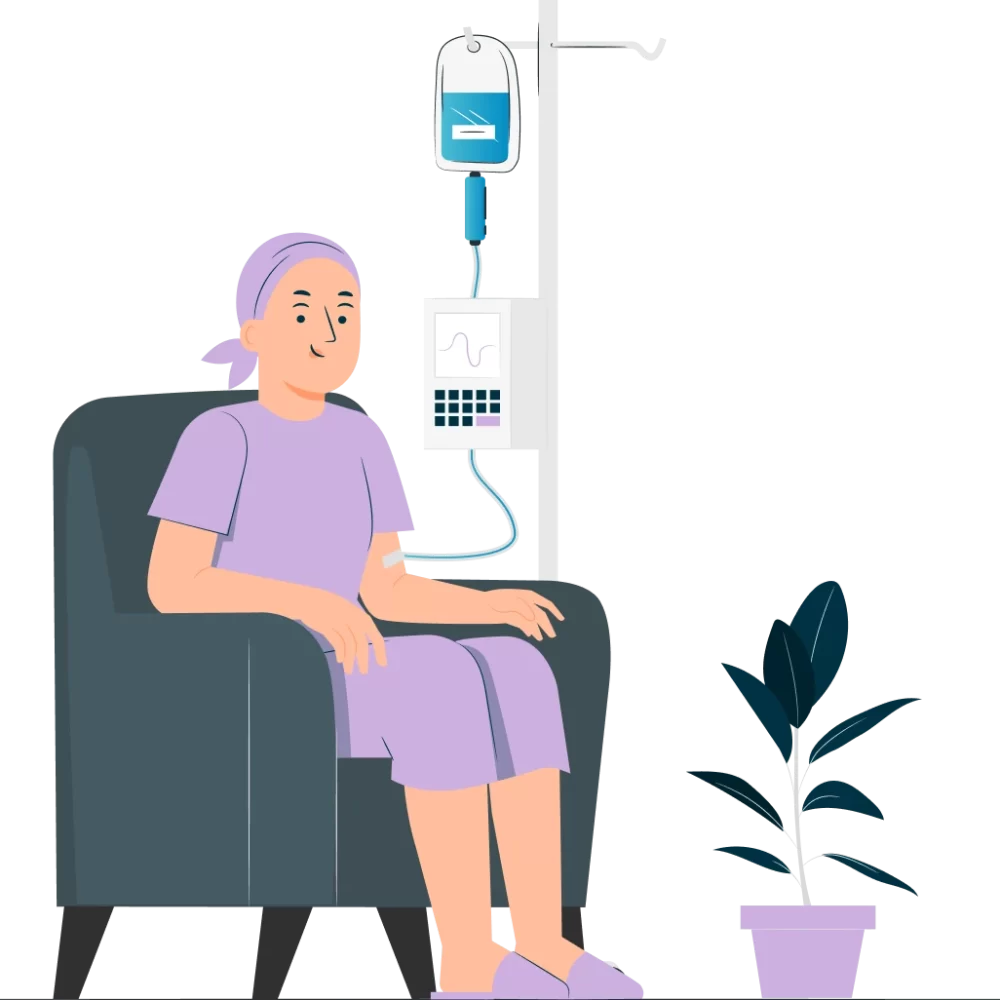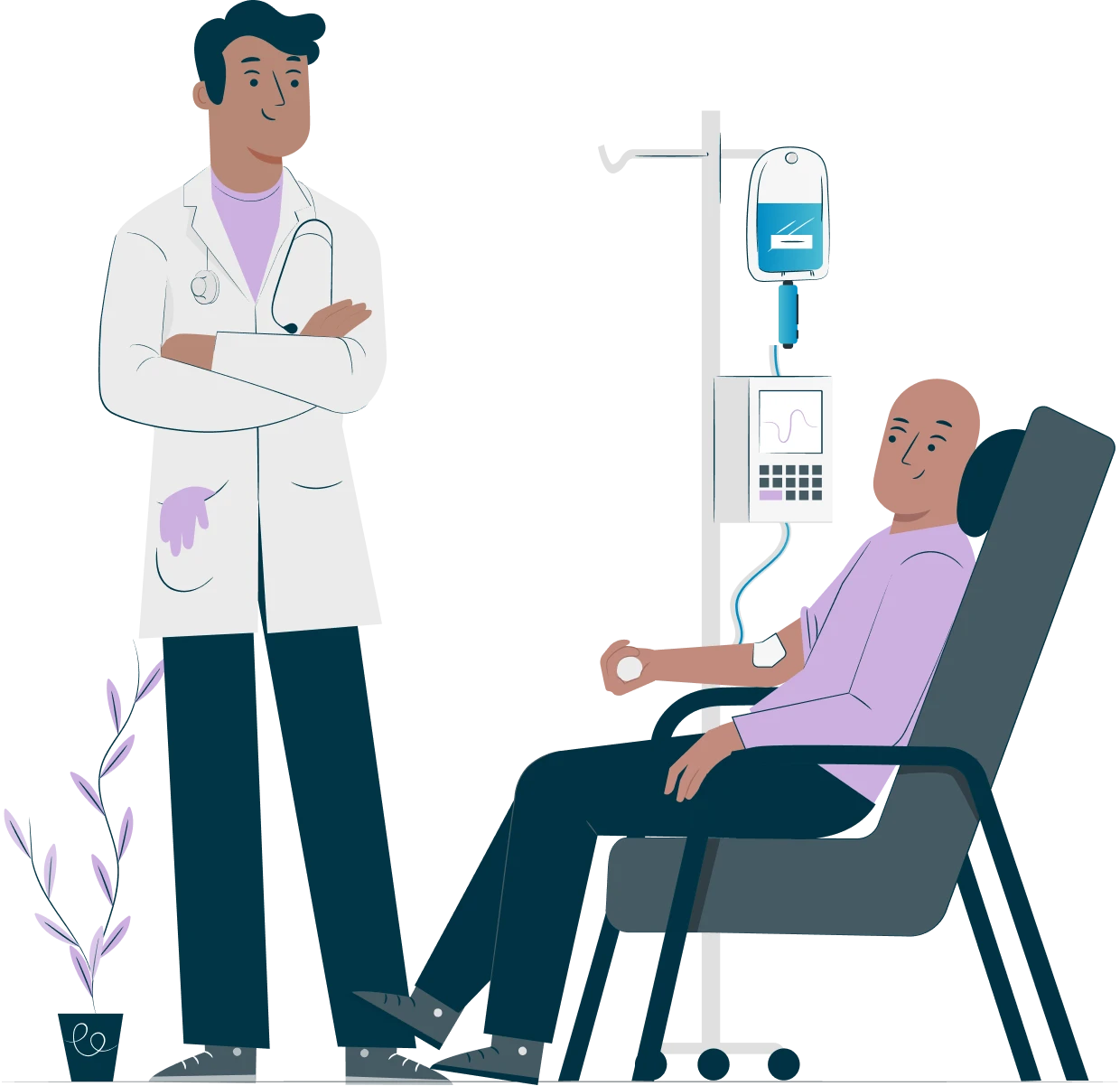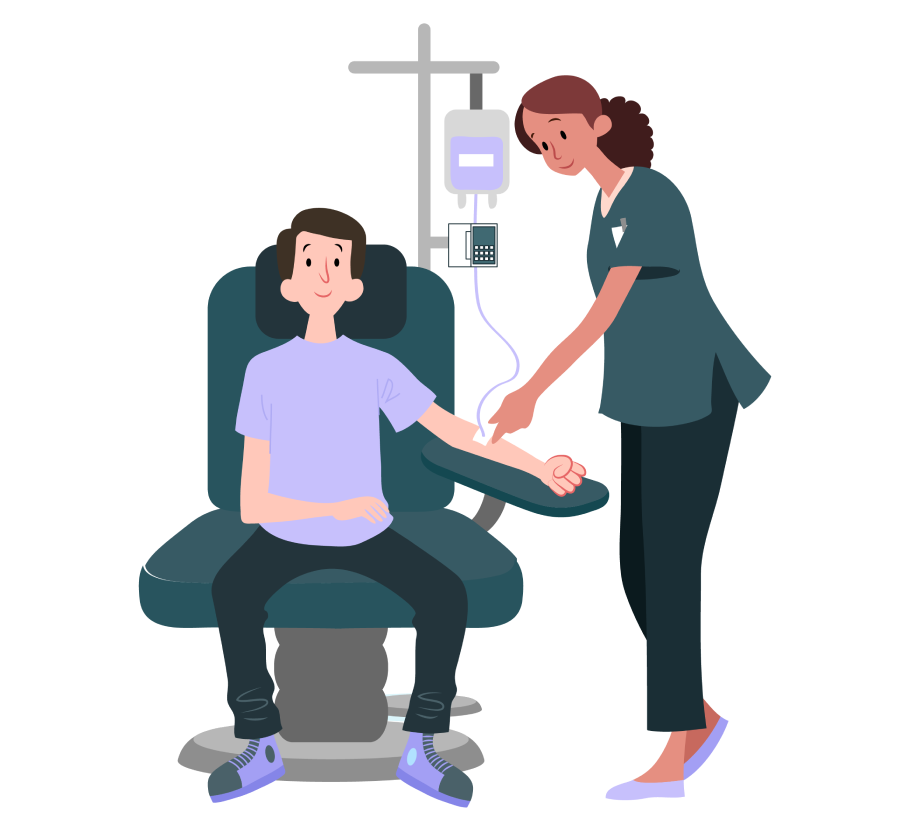Houston's Trusted Infusion & Specialty Therapy Center
Offering a full range of services, including home infusion therapy, infusion suites, and specialty pharmaceuticals. Our expertise covers treatments for immunology, rheumatology, neurology, infectious diseases, and gastroenterology, ensuring comprehensive care and management for our patients.


About Us
Simplifying Healthcare for all
Our sole mission is to alleviate the complexities of healthcare, making your life simpler and more manageable. We specialize in injectable and infusible drugs and provide comprehensive treatment options for various health conditions. Choose from our convenient home infusion therapy or visit our state-of-the-art infusion centers.
HealthQuest
IVIG Therapy
Seeking convenient and customized IVIG Therapy? With our range of care options for IVIG and SCIG infusions, you’re assured of receiving the best possible treatment, whether in the comfort of your home or at our state-of-the-art infusion center. Our mission is to deliver the highest quality care, guaranteeing the success of your treatment. Our dedicated team of specialists is always on hand, guiding you through each step, addressing any questions, and providing unwavering support.



HealthQuest
Home Infusion
Are you tired of visiting hospitals or clinics to receive your medication? HealthQuest offers a more straightforward solution – administer your medicine in the comfort of your home, whether at work or on the go.
Our expert team ensures the seamless delivery of injectable and infusible medication, helping you return to your everyday life and work schedule sooner.
HealthQuest
Infusion Center
Receive top-notch infusion treatment in a serene and welcoming environment. Our state-of-the-art infusion centers provide patients with the essential care they need, all while ensuring their utmost comfort. With a dedicated team of empathetic and skilled nurses, you can trust that you are in good hands at HealthQuest.


HealthQuest
Specialty
Our mission is to empower patients by giving them access to the most innovative and effective specialty drug therapies. Our dedicated team delivers a comprehensive range of injectable and infusible drugs, customizing treatments to meet the specific needs of patients facing various health conditions, including neurology, rheumatology, gastroenterology, and more.
HealthQuest
Financial Assistance Program
For patients with chronic illnesses requiring specialty drugs

Therapies
-
Insite Therapy Center.
We provide a comprehensive solution for in-office infusion suites and office management. Whether you already have a practice or are just starting, we offer a turnkey solution that allows physicians to seamlessly manage their patients from start to finish. With our expertise and support, you can focus on providing exceptional care while we care for the rest.
Process
How We Work
Looking for excellent home infusion therapy services that helps you to heal with your medical conditions? HealthQuest is the Infusion therapy service provider in Houston that are offering variety of treatments that are highly cost effective. We make sure to provide advanced care and treatment that helps patients to fight with their chronic medical diseases.

Contact Your
Prescriber
Take the first step towards your healing journey by contacting your prescriber

Prescriber-Client Connection
Once your prescriber has identified the potential for infusion or specialty therapy, they will connect with our dedicated customer service team

Personalized
Treatment Plan
Our experienced team and your prescriber will develop a personalized treatment plan tailored to your needs and goals
Testimonial
What Others Say About Us
EXCELLENTTrustindex verifies that the original source of the review is Google. I cannot sing the praises high enough for this organization. I won’t go into full details here, but I will tell you that James one of their employees and Jonah, their director are absolutely amazing people who have the heart of gold and really and truly care deeply for every single patient! You can fully trust this organization to care for yourself or your loved one, I can’t speak highly enough of them!!Posted onTrustindex verifies that the original source of the review is Google. Health Quest infusion pharmacy is such a wonderful pharmacy! From their intake dept, verification process, pharmacy techs and of course to their wonderful Pharmacist. Their pharmacy liaison James Reeves has always gone above and beyond to help us with setting up our patients with their IV ABT care. I can’t say enough great things about them. They’re fantastic group to send out patients to and work with. Thank you for caring for our patients and helping me for a long time now with your prompt response and attention. - Grisel Clegg from GREATER HOUSTON INFECTIOUS DISEASES ASSOCIATESPosted onTrustindex verifies that the original source of the review is Google. Healthquest infusion I thank God for them they come all the way out in the country and I mean I'm in the country to an old US Army man that I don't get out a lot and every time they have came they've been very professional very courteous I had no issues with the three different nurses that came they are just so sweet and like my mama used to tell me if you can't say something good about somebody don't say nothing at all but I am like the lady I cannot say how much good there is not enough time or room on Google for me to write this it is just a great service God bless you all🙏Posted onTrustindex verifies that the original source of the review is Google. If I could give HealthQuest Infusion & Specialty more than five stars, I would without hesitation. I have a complex medical condition that requires in-home infusions for 6–7 hours a day, two days in a row, every three weeks. Despite the complexity, HealthQuest has never missed a beat. Jeff, the pharmacist, is outstanding. He always ensures I have the right supplies well in advance and communicates clearly and consistently. His attention to detail has taken a huge weight off my shoulders. My nurse, Cindy, is truly amazing. She drives over an hour to reach me in a rural area and still shows up with professionalism, kindness, and incredible dedication. Her care makes a huge difference in my quality of life. From top to bottom, HealthQuest has been proactive, reliable, and genuinely caring. They make scheduling easy, they follow up, and most importantly, they treat me like a person, not just a patient. I’m incredibly grateful for the entire team and highly recommend them to anyone needing infusion care.
Owner's reply
Hi, Mandy. Thank you so much for your amazing 5-star review! We truly appreciate you taking the time to share your experience. Your kind words mean a lot to our team, and we're so glad we could meet your expectations. Thanks again for your support!Posted onTrustindex verifies that the original source of the review is Google. Amazing staff. Exceptionally friendly. They make getting infusions easy (that says a lot).
Owner's reply
We're delighted you had a good experience. Thank you for the review!Posted onTrustindex verifies that the original source of the review is Google. HealthQuest was very friendly and helpful in guiding me throughout this process. I had no clue what I was dealing with and they walked me through and made me feel at ease. The appointment was set up easily, the staff was friendly and informative, and Morgan made my transition home much easier. They have been a blessing to work with.
Owner's reply
Hi, Kamm. Thanks for taking the time to share your positive experience. We truly appreciate it!Posted onTrustindex verifies that the original source of the review is Google. This was my 2nd interaction with Peter. In my first conversation, he listened and understood the situation and did all that was in his ability to resolve the situation. The very NEXT DAY, Peter called to tell me that the issue would be expedited and I should expect to see my refund in 2 business days. He gave me a confirmation number for the CC transaction/refund. Many thanks to Peter for the extra efforts he took to resolve the issue and personally call me with the results.Verified by TrustindexTrustindex verified badge is the Universal Symbol of Trust. Only the greatest companies can get the verified badge who has a review score above 4.5, based on customer reviews over the past 12 months. Read more

our blog
Stay Informed with the Latest News in Infusion Therapy
NewsLetter
Stay Updated


